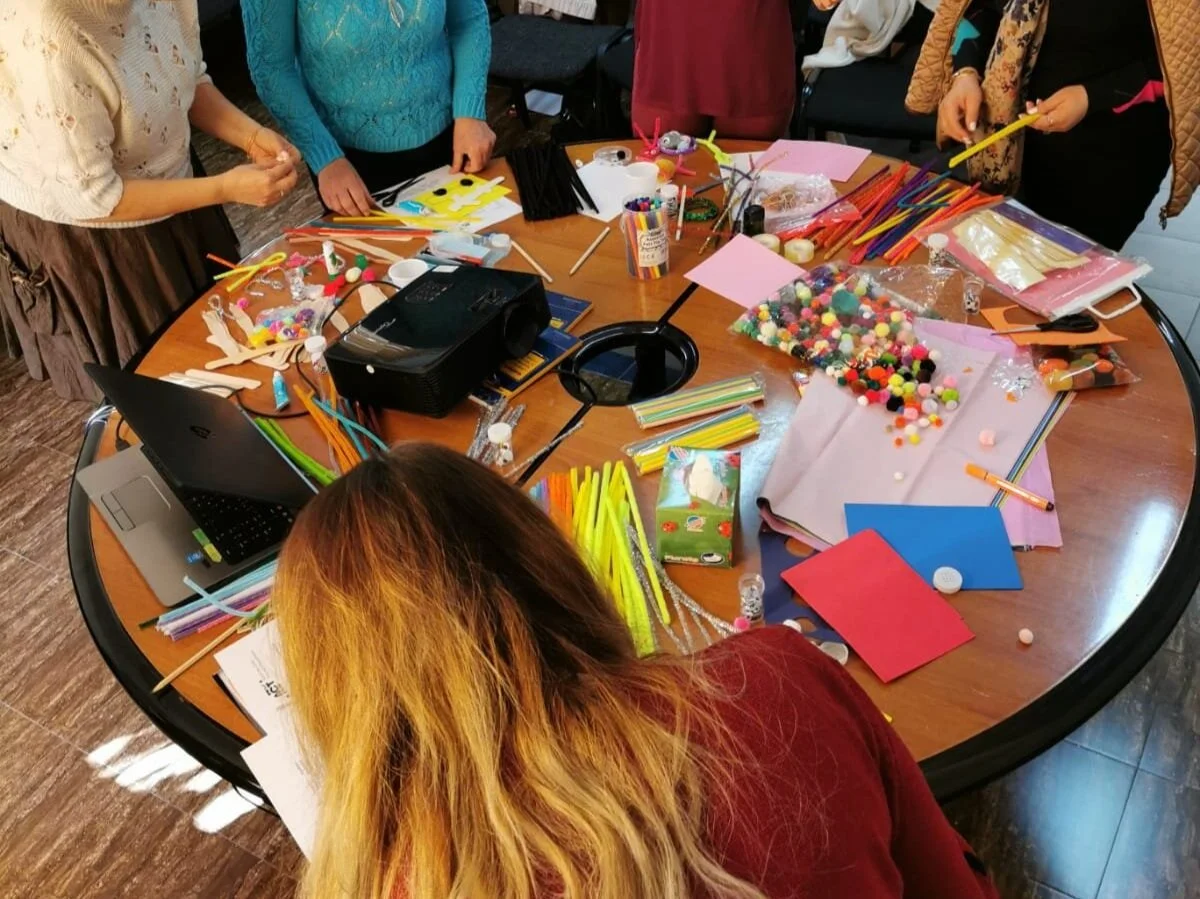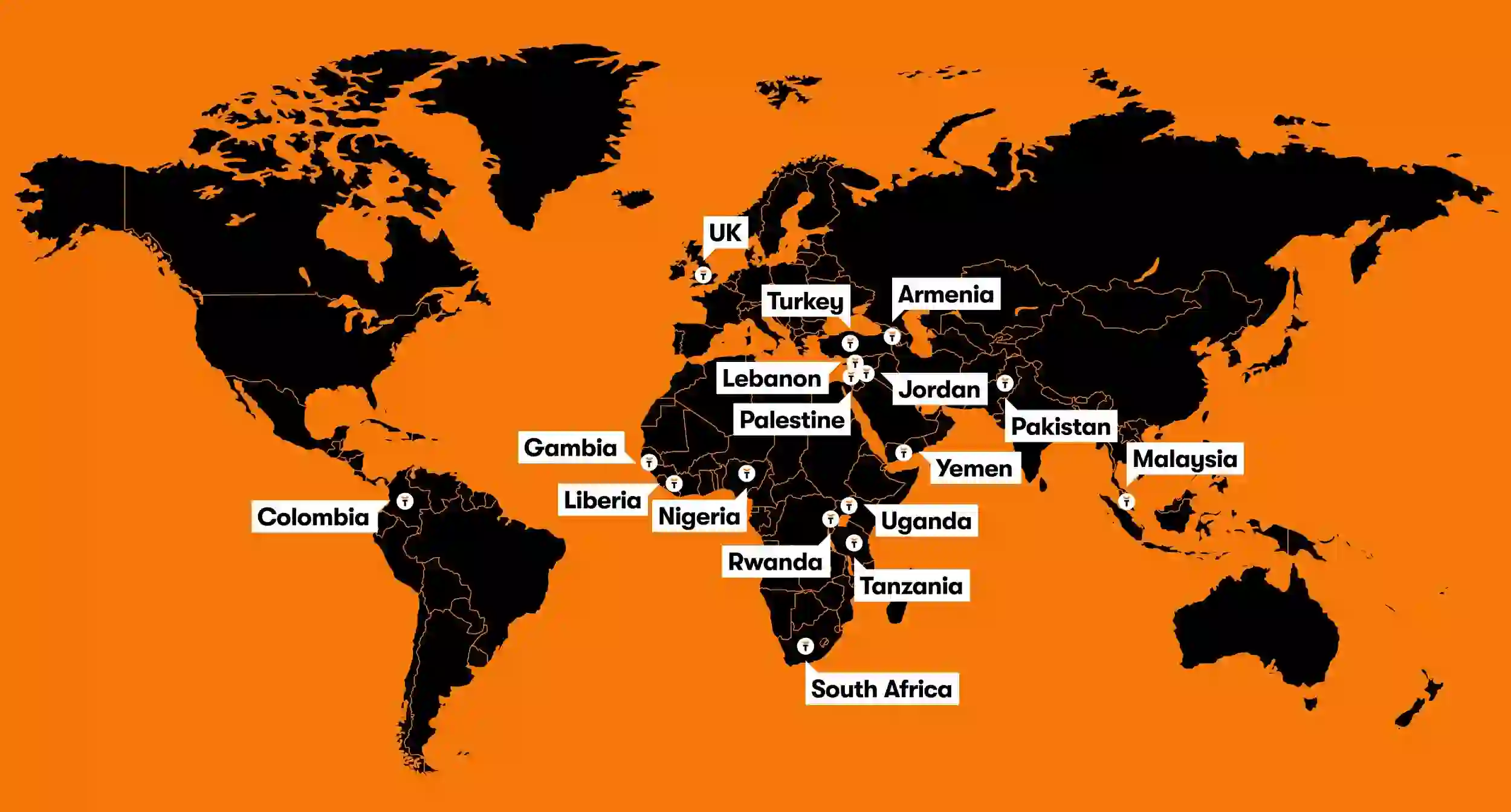We train people to treat traumatised children
Our experienced volunteers train and support people around the world, helping children recover from psychological trauma. We believe traumatised children deserve a chance to recover in childhood and we work with individuals, groups, organisations and states around the world who share this vision.
What is Trauma?
Trauma is a psychological response to an event or experience that is deeply distressing or disturbing. When an individual witnesses or experiences a traumatic event such as an accident, natural disaster, abuse, or act of violence, they may feel overwhelmed, isolated, or in danger. The impact of the event may be immediate or delayed, and it can disrupt their emotional stability, leading to challenges in coping with everyday life. The word trauma comes to us from Ancient Greek and can also be translated as wound, hurt, damage or defeat. It is thus a word that evokes injury not illness. Trauma is evidence that the individual has been injured, not that they are sick.
We specialise in severe and complex PTSD
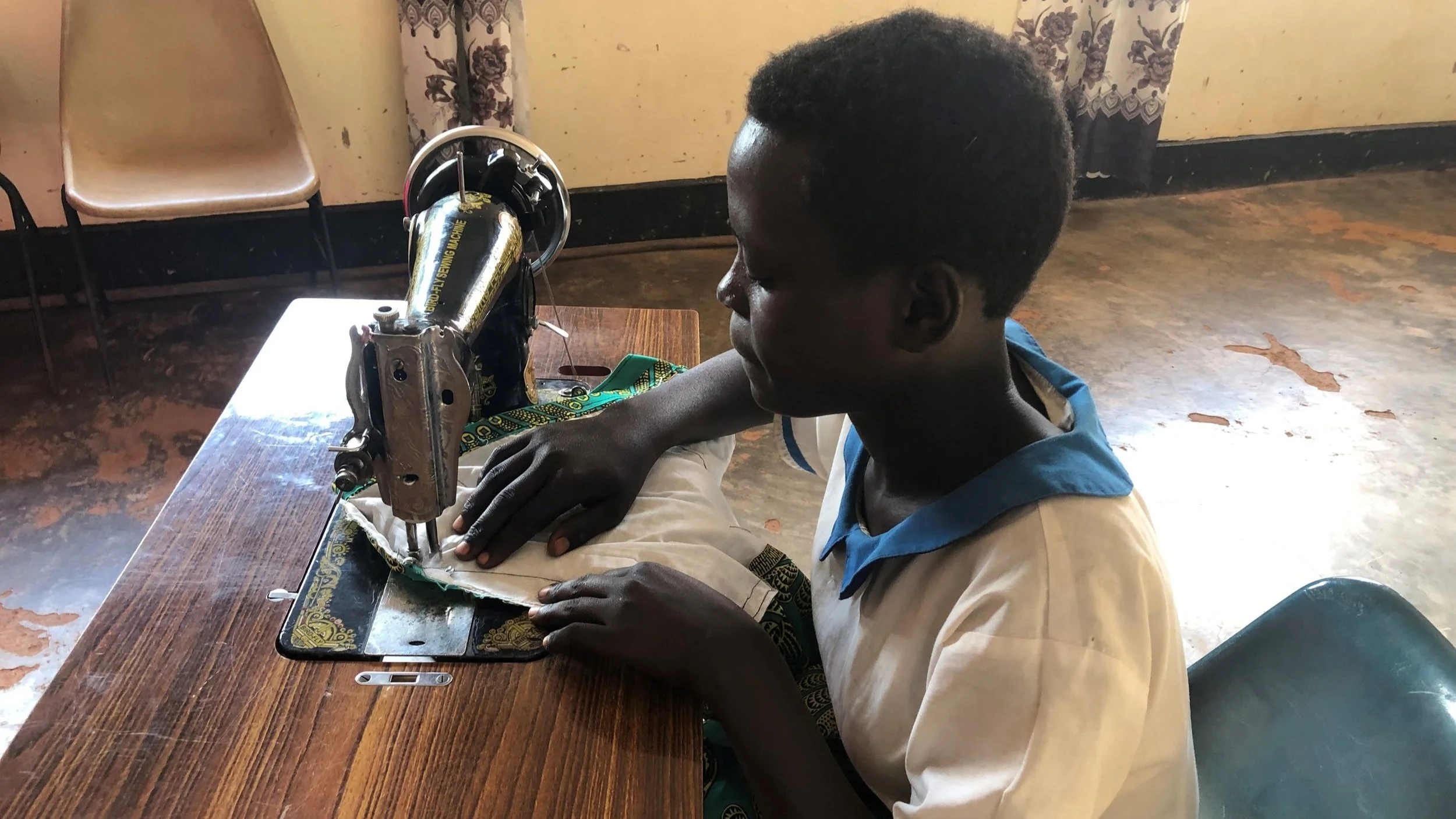
Omollo's Story - Age 13

Omollo's Story - Age 13
13 year old Omollo was one of a group of Ugandan girls who were about to be trafficked to a neighbouring country when their cries of fear and distress alerted passers-by. They were taken to the Bishop Asili Counselling Centre in Lira, where they were given food and shelter. The other girls recovered quickly but they reported that Omollo was wandering around all night, couldn't stay still and was frightened of everyone she met. They thought she was 'mad'.
Sister Florence, who runs the centre, managed to gain the child's trust and gradually discovered that this abduction was the latest in a series of traumatic events. Omollo's mother was disabled, shunned and abused by her neighbours and forced to beg in order to survive. When Omollo was only seven, she was sent to Kampala to work as a domestic slave, and was physically and sexually abused. She was eventually reunited with her mother but then their house was attacked and burned.
Identifying complex post traumatic stress disorder, Sister Florence first made sure that Omollo's basic needs were met and then set about counselling her, carefully helping her re-process her traumatic memories using CATT. Over several months, Omollo found she could sleep at night and was no longer so fearful. She now feels she has some control of her own life and can dream of a future where she supports herself and her family through her newly learned skills as a tailor.
“I went to the centre and I told Sister Florence my problem and she counselled me. It has calmed me and released the sadness I was having and out of the counselling is what I am now, since I am improving and getting better.”—Omollo, Age 13
Our trainees work in areas where children have been affected by war, disaster and state failure. These children may have seen their homes destroyed and close family members die. They may have suffered violence, sexual abuse, abduction and rape. Some may have witnessed genocide or been forced to act as child soldiers.
These experiences are at the extremes of what a child can survive. Some children who have experienced traumatic events like this will report symptoms of post-traumatic stress disorder (PTSD) and face severe limitations in their ability to play, learn and develop.
What is Post-Traumatic Stress Disorder (PTSD)?
Post-Traumatic Stress Disorder (PTSD) is a condition that emerges when an individual's trauma does not heal over time. Those with PTSD endure persistent and intrusive memories of their trauma, often feeling as though they are reliving the event in the present. This can lead to avoidance of anything that recalls the trauma, negative shifts in thoughts and mood, and heightened physical and emotional reactions. A key feature of PTSD is the disruption in how memories are processed and stored. Traumatic memories remain vivid and current, significantly impacting daily life.
Some children may additionally report symptoms of complex post-traumatic stress disorder (CPTSD) and struggle to form relationships, communicate or develop a sense of self.
What is Complex Post-Traumatic Stress Disorder (CPTSD)?
Complex Post-Traumatic Stress Disorder (CPTSD) is a condition that results from chronic or long-term exposure to trauma over which a person has little or no control and from which there is little or no hope of escape. It can lead to complex and pervasive negative effects on self-identity and self-worth and can affect personal relationships and one's sense of security. CPTSD is sometimes called "developmental trauma" when it occurs in early life, because the individual has the negative consequences of PTSD and the negative consequences of missing opportunities to develop a secure sense of self, due to the impact of the trauma.
PTSD and CPTSD symptoms arise when traumatic memories haven't been fully processed. When faced with overwhelming events that threaten our survival, our brains and bodies rely on primitive systems to stay alive. These systems are good at keeping us alive, but not good at storing memories in a coherent order. When we recall memories stored by these systems, we receive the information contained in the memory without and indication that this is information about a past event. The experience for the child is that the information is about something that is happening now.
Without effective intervention, the child can experience the same traumatic events repeating over and over in flashbacks, nightmares and waking life. The memories cannot be sorted into their rightful place - the past - because when the memory is recalled, it triggers another experience of the traumatic event. This, in turn, triggers the primitive systems that can keep the child alive but which can't effectively sort the memories. Truly, a viscious cycle.
As we often say, We can't change what happened. We can change what happens next.
With effective intervention and appropriate support, the child can get access to their traumatic memories without re-experiencing the events they are about. We specialise in teaching people how to provide this.
We teach highly effective techniques that work in conditions where large numbers of traumatised children are found
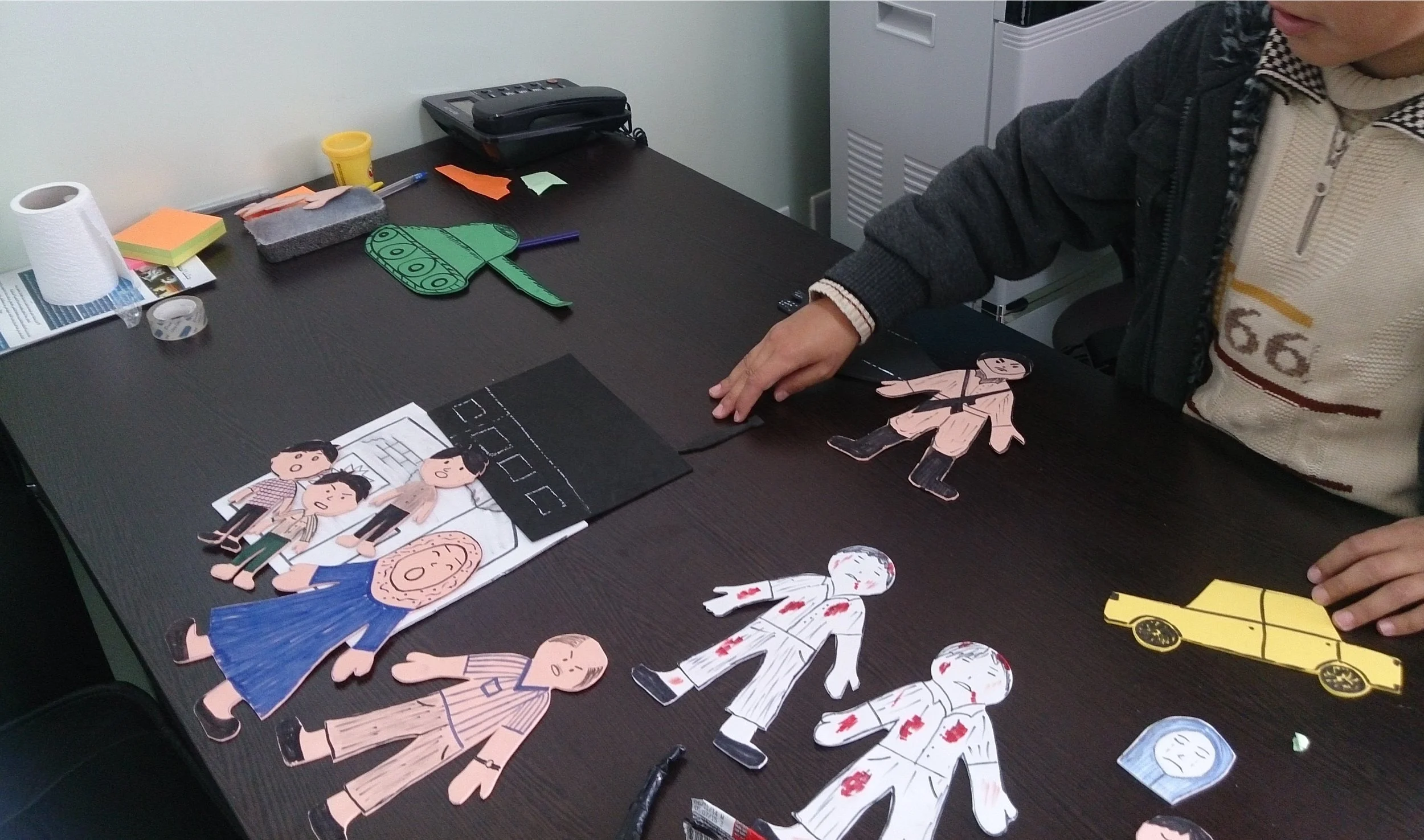
Rashid's Story - Age 10

Rashid's Story - Age 10
When war started in Syria, Rashid was only seven years old and couldn't understand why his parents and relatives were so anxious. Then one night their neighbourhood was bombed and he saw people injured and bleeding. He and his family were lucky to escape with only minor injuries but they lost everything and home became a tent in a large camp of displaced people. For the next three years, symptoms of Post Traumatic Stress Disorder (PTSD) dominated Rashid's life and that of his whole family. He stopped playing, seemed listless and uninterested in family life, but he was quick to become angry for little reason. His parents found it difficult to cope with his mood swings. At school he was almost completely silent and often didn't seem to hear or see what was happening around him. Yet, when his teacher put out red pens for the class to use, he became really upset and ran crying from the room.
Now ten, Rashid's life is at last returning to normal. After several sessions with a counsellor trained by ACT International to use CATT, he was able to think about the night of the bombing without being overcome by terror. It was as if he had put those bad memories firmly into the past. After seven sessions of therapy, he has fewer angry outbursts and can sleep in his own bed untroubled by nightmares. He is much more confident and outgoing. His teachers reports that he now joins in all class activities but she avoids using red pens as a precaution.
Our founder developed a technique that gives children access to global best practice for trauma treatment in a style that works for them. This technique is called Children's Accelerated Trauma Technique (CATT) and it can be learnt by people with no prior clinical experience. This means that CATT is particularly well suited to responding to the needs of populations where there are large numbers of children with PTSD, where there is often a shortage of people with clinical training and the institutions needed to establish a large enough clinical population in time. War, genocide and state failure are some examples of these conditions.
What is Children's Accelerate Trauma Technique (CATT)?
CATT is a child-centred therapeutic treatment which combines play and arts therapy techniques with trauma-focused cognitive behavioural therapy and children’s rights principles. It enables children to safely reprocess their traumatic memories, and then get back to normal life with increased resilience. It is fully aligned with World Health Organisation recommendations for treating PTSD in children. CATT was developed by child therapist and psychologist Dr Carlotta Raby, while she worked with traumatised children in the UK and a post-conflict area overseas. It is holistic, paying attention to the needs and circumstances of the child, as well as focusing on treating the symptoms of PTSD. It was developed with children for children, rather than being adapted from techniques designed for adults.
In addition to CATT, we teach programmes that can be used in group settings to help children build resilience and manage anxiety after traumatic events. These programmes can be taught online.
Our anxiety and resilience programme
The Anxiety and Resilience programme provides materials for teachers, nurses, youth workers etc who work with children and teens (including displaced children and refugees) in conflict and disaster-affected areas, to reduce their anxiety and build hope and resilience. The anxiety management techniques in the programme are based on well-tested CBT and Mindfulness strategies and are illustrated by stories designed to help children affected by conflict or disaster. The stories can be adapted for different ages, cultural backgrounds and situations. Each session also includes games and activities which help children practice the tools and build their confidence and resilience.
We maintain global readiness with a multi-national, multi-lingual network
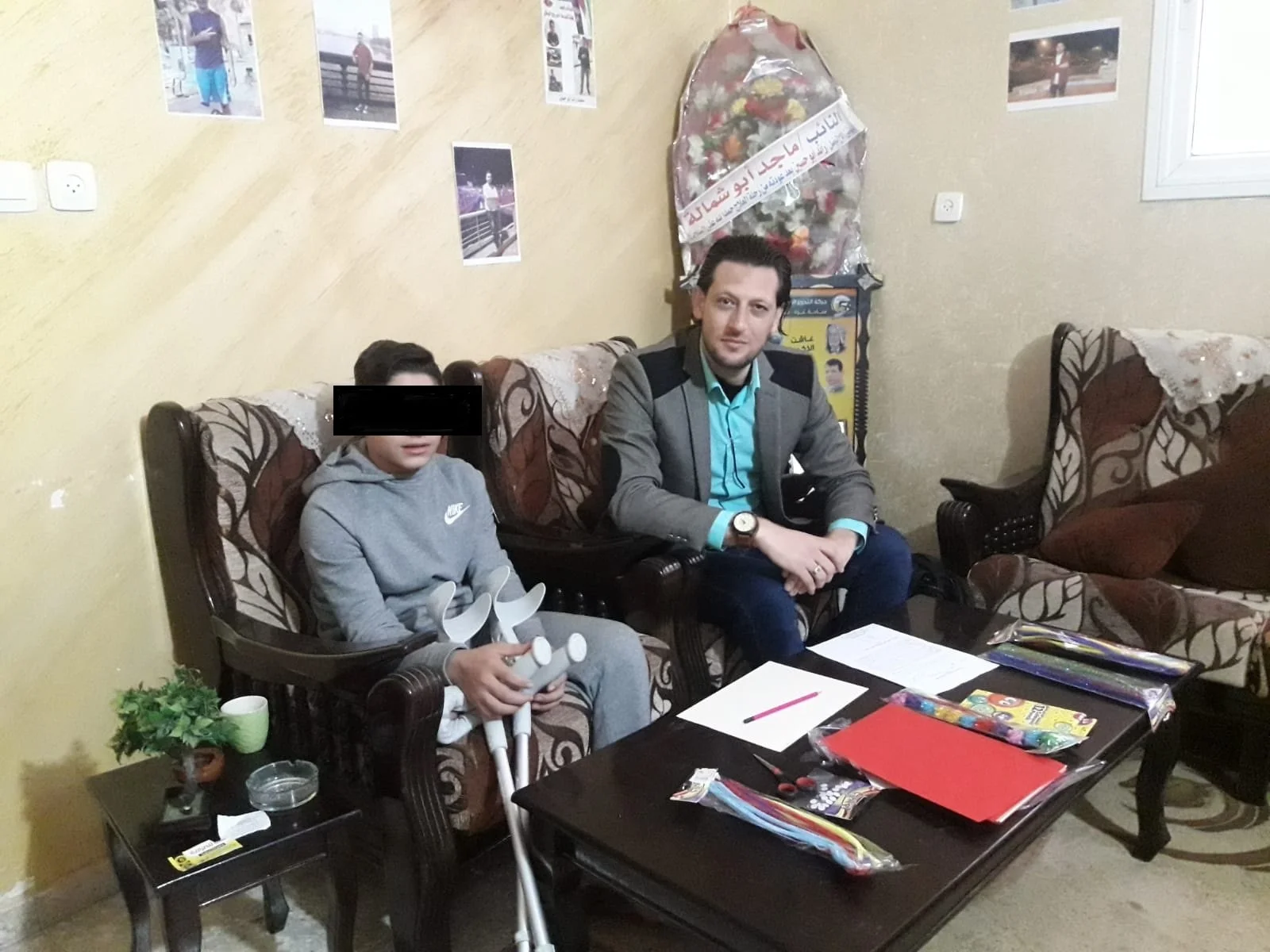
Ahmed's Story - Age 9

Ahmed's Story - Age 9
Before his leg was amputated, Ahmed was a fun-loving child who loved playing football in the street outside his home in Gaza. He was injured when his neighbourhood was shelled and his house suffered a direct hit. In the months that followed, he had a series of operations as doctors focussed on his physical recovery. It was only gradually that his family saw how much emotional and psychological pain the bomb had inflicted.
The nine year old became quiet and withdrawn, reluctant to go outside. He tried to suppress bad memories and avoided anything that reminded him of the shelling but in nightmares he saw his mother trapped in the rubble screaming. Unable to explain the cause of his terror, he told his parents it was as if a monster was coming to crush him.
A year passed, then another, but Ahmed's fearfulness and sense of isolation grew. He was unable to complete the simplest task and some days he couldn't even get out of bed. Eventually he was diagnosed as having post-traumatic stress disorder and referred for treatment with a specialist counsellor who helped him process his memories and feelings and regain his confidence. It will take Ahmed more time to adjust to his disability, but the sense of fear has gone and he is back at school where he has new friends. He's had to abandon plans to become a famous footballer but is now studying hard and hoping to be an engineer like his father.
ACT International has trained people in 17 countries. This means we have trainers and supervisors available to help new intitiatives get set up quickly, providing supervision remotely in the language new trainees are going to be operating in. We can provide and translate proven tools and materials to trainees that they can use to support clients and engage in PTSD awareness work with their communities. We will also advise on safeguarding best practices and connect new trainees with others who have been in similar situations elsewhere in the world.
We operate a cascade model, run special projects and provide ongoing support so that our work sustains after our trainers have left
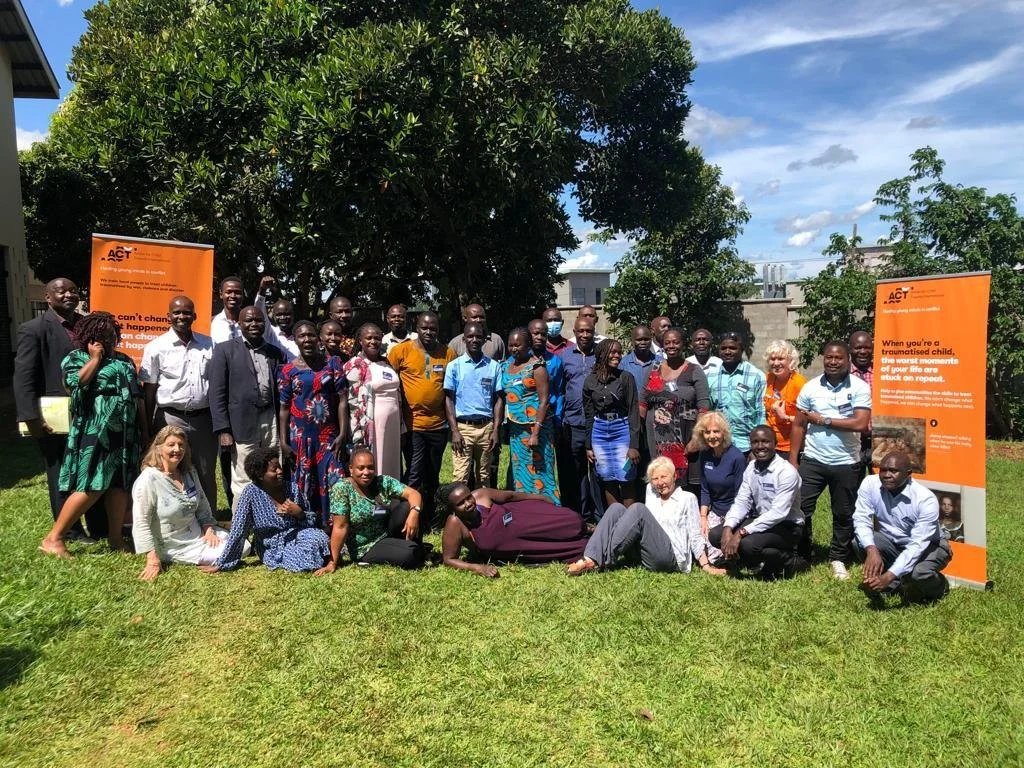
Our work in Uganda

Our work in Uganda
When ACT International began to work in Uganda in 2011, child and adolescent mental health services were inaccessible to most Ugandans and there was only one psychiatrist specialising in child and adolescent mental health. From 2012, ACT International worked as a partner of East London NHS Foundation Trust on its mental health link with Butabika National Referral Hospital in Kampala, training the country's first children's mental health specialists. Dr Godfrey Zaari Rukundo, one of the first to be trained in CATT, was among those who persuaded the Ministry of Health to support the two-year children's mental health diploma course, accredited by Mbarara University of Science and Technology where he is Head of the Department of Psychiatry. CATT was an important element of the course within the module on childhood trauma.
“With an adult you could easily do something. You could easily ask them to say what happened, and maybe you have a conversation but, because children were not able to express themselves most of the time following trauma, it was quite challenging to handle children who were traumatised. We just ended up giving them medication without knowing what we are treating. So when CATT came, it was very helpful because at least it can be used with a range of children, whether they were able to communicate, whether they are willing to talk about their trauma or not, at least as long as they're able to understand the instructions, you could do it.”
Although CATT training is specifically designed to help children suffering from PTSD, a social impact assessment carried out in 2016 showed that it increased counsellors' psycho-social knowledge, improved their understanding of children's rights and promoted child-centred practice. Since then, more than 160 CATT counsellors have been trained, and 14 have themselves become trainers, spreading practice across the country.
In IDP and refugee settlements on the border between Uganda and Sudan, the UK-based charity, CRESS employs a team of nine trauma counsellors trained in CATT by ACT International. These counsellors work under the auspices of the Diocese of Liwolo exiled in Uganda, offering trauma therapy and emotional health guidance for a small remuneration of $15 a month. The most common causes of trauma they see are child neglect, rape and sexual abuse.
In two years of pandemic, between November 2019 and December 2021, they saw 858 children, whose treatment is documented in case files. All of them had high CRIES-8 scores at the first assessment, indicating a diagnosis of PTSD. After treatment with CATT, a marked reduction in CRIES-8 scores was seen in all cases, to below the threshold for PTSD, indicating significant improvement or total removal of many of the main symptoms of PTSD such as re-experiencing and avoidance.
The CRESS CATT model is exceptional for Uganda in having a dedicated team of practitioners, who are themselves refugees with first-hand experience of trauma who live in the communities they serve.
“We work in tough times and tough situations. So, because of the love for the work and the love for the children, we have to accept and just continue doing the work to save the lives of the children so they can really cope positively and to build up the resilience of the children. That’s why I said, we go through tough times, tough situations, but we have to persevere. And our pleasure is seeing children coming up and coping positively. And that becomes our pride."—Beatrice Kiden
We provide individually tailored training led by experienced child mental health and education experts. They train NGO staff responding to conflicts and disasters as well as local mental health professionals and others working closely with traumatised children to treat post-traumatic stress disorder (PTSD).
Our model enables local people to use CATT and allows those who have gained a high level of experience to train others. This generates growth in the skills needed to treat PTSD, strengthening communities and ensuring our work has sustained lasting impact. Establishing local networks of practitioners and connecting them internationally means we can help children in parts of the world where mental health services are non-existent or under-resourced.
We offer ongoing support for some individuals and community organisations caring for traumatised children with very limited resources. For example, through the "Friends of Butabika Children's Ward" we offer ongoing support that protects the rights of child patients and support staff to provide high quality care and treatment in an area with very limited medical resources. At the individual level, we may invest to help trainees to increase their scope and impact on the ground. A trainee with a boda-boda can travel further and reach other communities. A trainee with a projector can run a larger group training course.
Overall, our operating model aims to help communities recover quickly and safely from the impacts of war, disaster and state failure. We succeed when children find themselves in resilient trauma-responsive communities with access to local practitioners who understand how to help them, and local trainers who make sure there are enough practitioners to serve the population.
